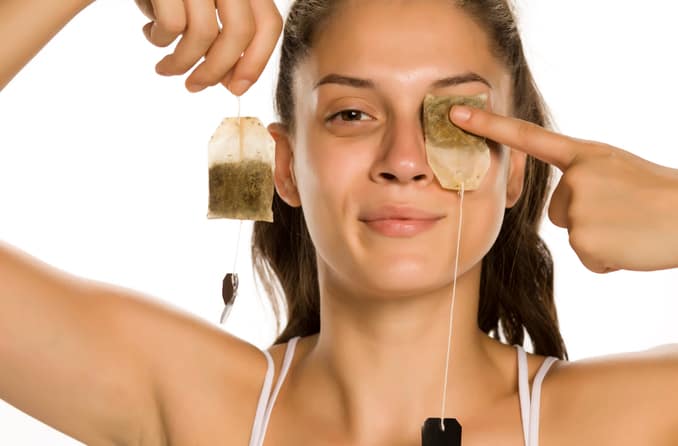All Categories
Featured

While most individuals recognize the value of protecting their skin from the sun, the damaging effects of ultraviolet (UV) rays on eye health commonly go overlooked. Whether you're soaking up the sun on a summer season day or strolling outdoors on a cloudy mid-day, guarding your eyes from UV rays is important.
What Are UV Rays? UV rays are a kind of electro-magnetic radiation emitted by the sunlight. They are classified right into 3 types:
UVA Rays: These permeate deep into the skin and eyes and can add to lasting damage. UVB Rays: These rays are more extreme than UVA and are mainly responsible for surface-level damages to the eyes and skin. UVC Rays: These are one of the most harmful but are primarily taken in by the Earth's ozone layer and don't usually reach us. UVA and UVB rays are the main offenders behind eye-related damage.
Short-Term Results of UV Direct Exposure on the Eyes. Also short-term direct exposure to extreme UV rays can damage your eyes. One typical problem brought on by this is photokeratitis, or "sunburn of the eye." Signs of photokeratitis include:
Unpleasant, red eyes. Sensitivity to light. Tearing or excessive watering. Short-term vision loss or fuzzy vision. Photokeratitis is generally temporary, however it acts as a caution of exactly how damaging UV exposure can be, also in small dosages.
Long-Term Results of UV Exposure. Prolonged exposure to UV radiation can lead to a lot more significant and irreversible eye problems, such as:
Cataracts: UV rays can speed up the formation of cataracts, a condition that causes clouding of the eye's all-natural lens, bring about blurred vision and, if untreated, blindness.

Macular Deterioration: UV direct exposure can harm the retina, specifically the macula, raising the danger of age-related macular degeneration (AMD), which influences central vision.
Pterygium: A growth of cells on the white part of the eye that can expand over the cornea, triggering discomfort, soreness, and vision issues.
Pinguecula: UV direct exposure can create yellowish deposits to form on the conjunctiva, leading to irritation and dry skin.
Skin Cancer Cells Around the Eyes: The delicate skin surrounding your eyes is very vulnerable to UV radiation, increasing the risk of skin cancers cells like basic cell cancer and squamous cell cancer.
How to Secure Your Eyes from UV Rays. Shielding your eyes from UV rays is easy and requires a few mindful routines:
Buy High Quality Shades: Pick sunglasses that block 100% of UVA and UVB rays. Seek tags that specify "UV 400" security. Wrap-around styles are perfect as they block UV rays from the sides too.
Use a Wide-Brimmed Hat: A hat with a brim a minimum of 3 inches vast can substantially decrease UV exposure to your eyes and face.
Limitation Exposure During Top Hours: UV rays are toughest between 10 a.m. and 4 p.m. If you should be outdoors throughout these hours, make sure you're sufficiently shielded.
Do Not Be Tricked by Clouds: UV rays can permeate via clouds, so it's essential to wear sunglasses even on overcast days.
Secure Your Eyes Year-Round: Snow, sand, and water can show UV rays, heightening their effects. Eye security isn't simply for warm summer days-- ensure you're covered in all seasons.
Use UV-Blocking Call Lenses: Several call lenses now come with UV protection. If you wear contacts, ask your eye physician concerning lenses with integrated UV filters for added security.
Encourage Eye Defense for Kid: Kid's eyes are much more conscious UV rays since their lenses are clearer, enabling more radiation to get to the retina. Make sure they put on sunglasses and hats during exterior tasks.
Normal Eye Exams. Routine check-ups with an eye care expert are essential for very early discovery of any kind of UV-related damage. An optometrist or ophthalmologist can examine your eyes, advise safety actions, and find problems like cataracts or macular deterioration early on.
Final thought. UV rays present a substantial hazard to eye wellness, and their effects can build up gradually. With the ideal precautions, you can lessen these threats and safeguard your vision. By putting on UV-blocking sunglasses, limiting sun direct exposure throughout optimal hours, and staying consistent with eye exams, you can ensure your eyes remain healthy and your vision stays clear for several years to find. Securing your eyes from UV radiation isn't nearly comfort-- it's an essential action in maintaining your long-term eye health and wellness.
Latest Posts
Why Routine Vehicle Maintenance at Montclare Auto Repair Reduces Costs
Check Out Leading Car Repair Care in Chicago – Drive with Confidence
Discover Brake Repair & More: Comprehensive Services Guide from Montclare Auto Repair
More
Latest Posts
Why Routine Vehicle Maintenance at Montclare Auto Repair Reduces Costs
Check Out Leading Car Repair Care in Chicago – Drive with Confidence
Discover Brake Repair & More: Comprehensive Services Guide from Montclare Auto Repair